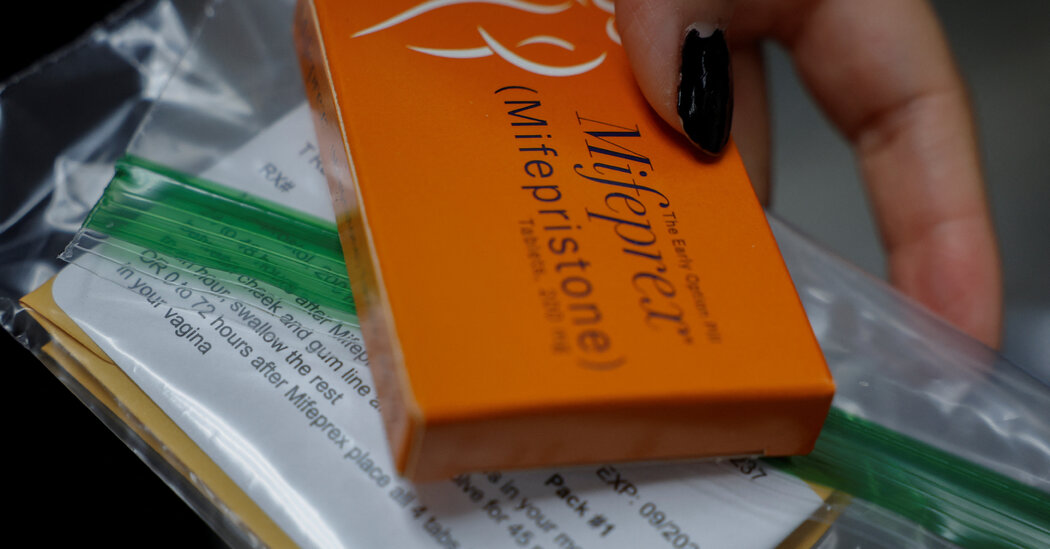A bill that is expected to pass would impose prison time and thousands of dollars in fines on people possessing the pills without a prescription.
Louisiana could become the first state to classify abortion pills as dangerous controlled substances, making possession of the pills without a prescription a crime subject to jail time and fines.
A bill that would designate the abortion pills mifepristone and misoprostol as Schedule IV drugs — a category of medicines with the potential for abuse or dependence — passed the state’s Republican-controlled House of Representatives on Tuesday by a vote of 63 to 29. Should the Senate follow suit, Gov. Jeff Landry, a Republican and a vocal opponent of abortion, is likely to sign the legislation into law.
The measure — which would put abortion pills in the same category as Xanax, Ambien and Valium — contradicts the way the federal government classifies mifepristone and misoprostol. The federal Food and Drug Administration does not consider abortion pills to be drugs with the potential for dependence or abuse, and decades of medical studies have found both to be overwhelmingly safe.
Under the legislation, possession of mifepristone or misoprostol without a prescription in Louisiana could be punishable with thousands of dollars in fines and up to five years in jail. Pregnant women would be exempt from those penalties; most abortion bans and restrictions do not punish pregnant women because most voters oppose doing so.
“These drugs are increasingly being shipped from outside our state and country to women and girls in our state,” Attorney General Liz Murrill, a Republican, said in a statement on social media. “This legislation does NOT prohibit these drugs from being prescribed and dispensed in Louisiana for legal and legitimate reasons.”
Louisiana already bans most abortions, except when women’s lives or health are in danger or fetuses have some fatal conditions. As a result, abortion rights advocates and legal scholars said that in practice, the measure might not prevent many abortions among Louisiana women. Since the state imposed its strict abortion ban after the Supreme Court overturned Roe v. Wade, many patients have traveled to states where abortion is legal or have obtained pills under shield laws from doctors or nurses in other states who prescribe and mail the medications to Louisiana. Such circumstances would not be affected by the new bill, experts say.
